In pictures: The changing face of UK industrial estates
- Published
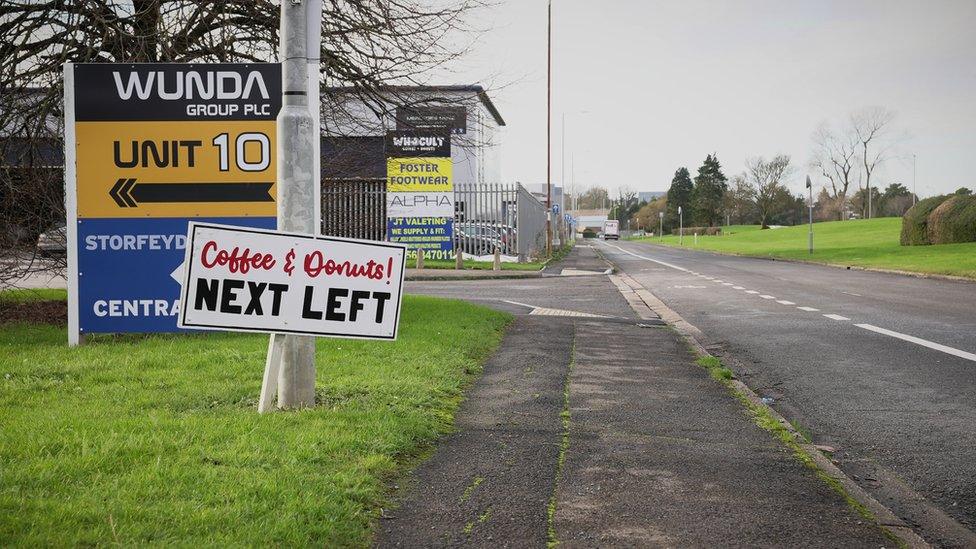
Restaurants, cafes and even bars can be now be found in spaces traditionally linked to industry
When the UK's first industrial estates appeared in the 1930s they were built simply to boost Britain's productivity.
But more than 80 years later, the industrial space is vastly changed.
Among traditional hauliers, distributors and manufacturers is a growing number of firms from sectors more synonymous with the high street.
Cafes, gyms, artisan restaurants and Instagrammable experiences, like axe throwing, have moved into cavernous lock-ups.
'Industrial in nature'
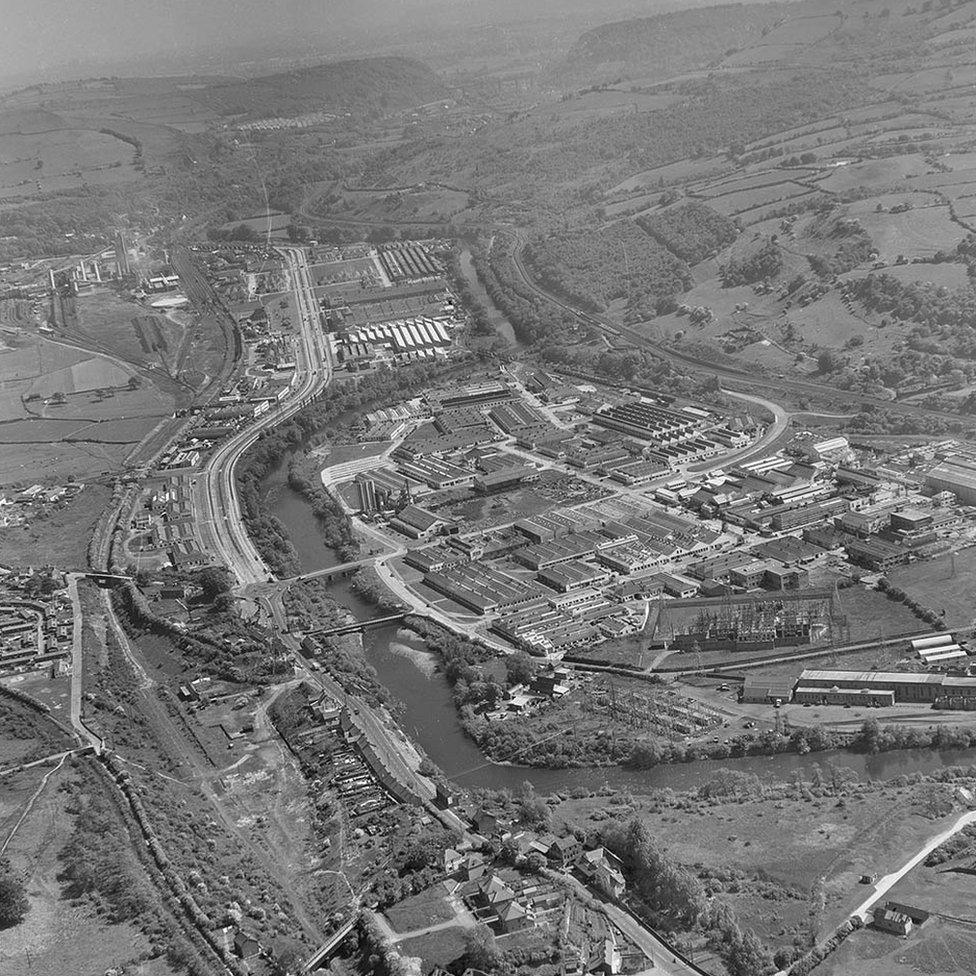
Wales' first industrial estate - seen here from the sky in 1952 - was in Treforest
Commercial property agent and former CBI Wales chairman Chris Sutton has seen the change at first hand.
He said: "Twenty or 30 years ago, industrial estates were just that. They were industrial in nature, but now we see them as a business location.
"Just in the past two years, we've seen lettings to pottery workshops, a bakery, gin distillery, gyms, craft breweries, climbing walls, funeral services, vets nutrition, a recording studio."

Chris Sutton says industrial estates became an opportunity to rejuvenate the economy
There are thousands of industrial and trading estates across the UK, with many clusters of them in Wales.
The idea of the industrial estate was born out of a desire to supercharge the UK's industrial production. That was certainly the idea at Wales' first trading estate in Treforest.
Off the back of Wales decline in heavy industry, it became, according to Mr Sutton, "a once-in-a-lifetime opportunity" to rejuvenate.
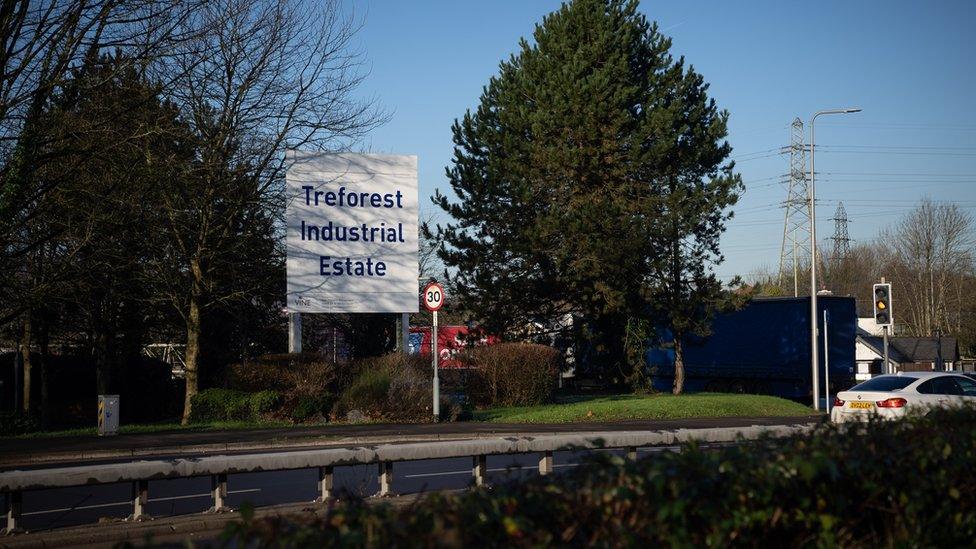
Industrial estates, such as that in Treforest, were created to boost Britain's industrial productivity
'A good location'
"So what we've seen is that industrial accommodation provides a good location for businesses of a wide range. It's not just straightforward, sort of widget manufacturing," he said.
Cardiff's Boneyard has transformed one corner of industrial space into a thriving creative community.
Everything from pizza restaurant to psychotherapists now work from the huddle of converted containers.
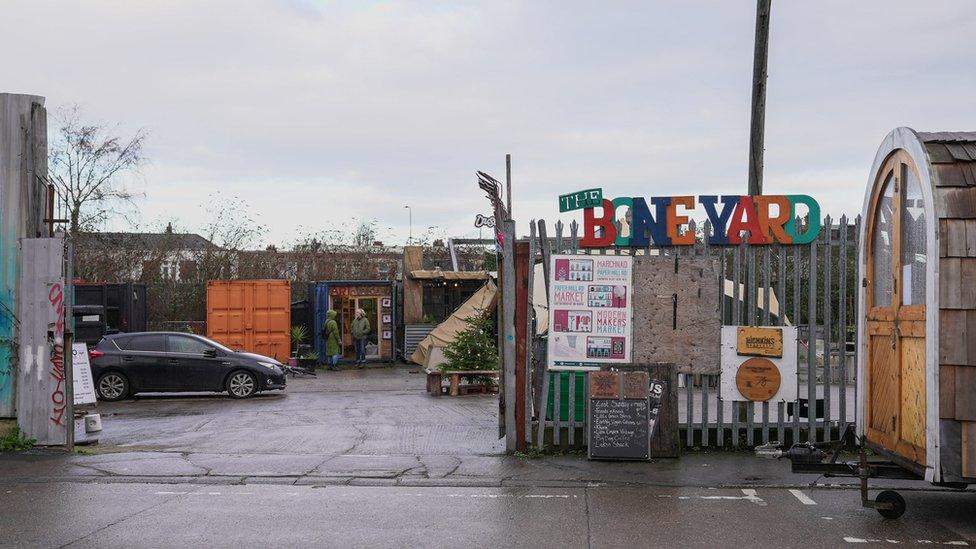
The Bone Yard in Cardiff is made up of repurposed shipping containers
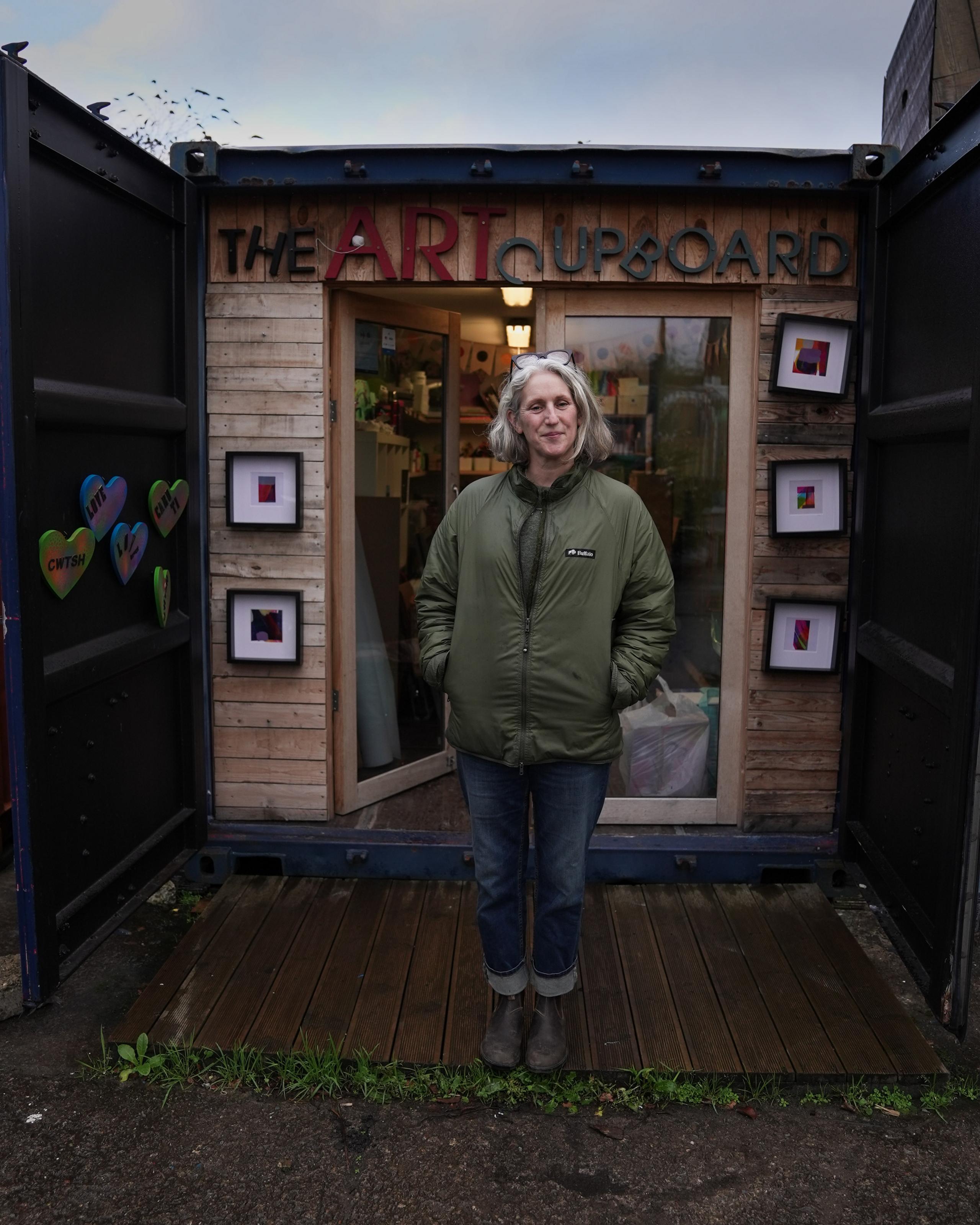
Shoppers have been drawn to industrial spaces by a new kind of retail experience
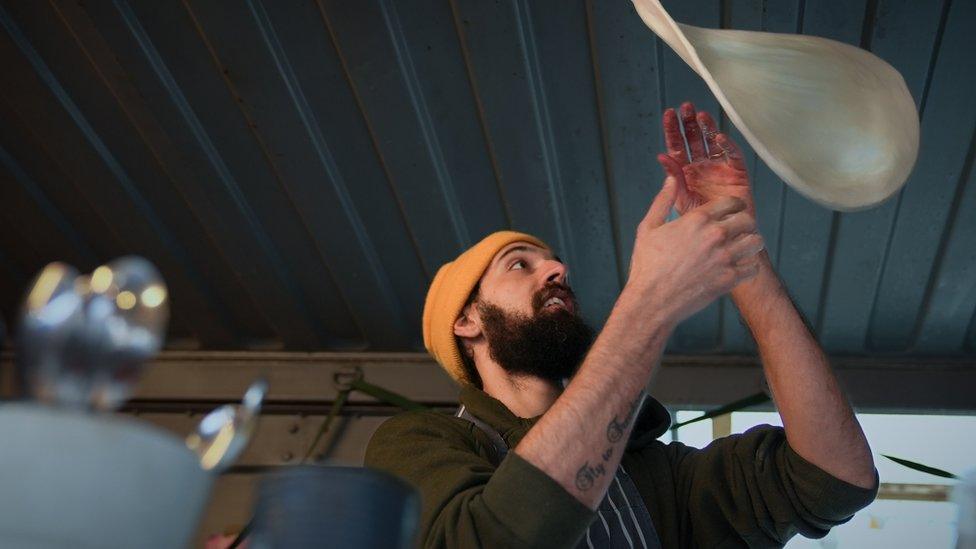
Hospitality businesses are becoming a draw for diners on trading estates and business parks
'A different dynamic'
And it's this kind of re-use, and repurposing of industrial space that retail management expert Laura James from University of Wales Trinity St David believes is driven by a change in consumer attitude.
"The first thing to say is that consumers know that there's a need, perhaps, to travel to different destinations in order to kind of fulfil that experience that they're looking for," she said.
"It definitely is a different dynamic, isn't it."
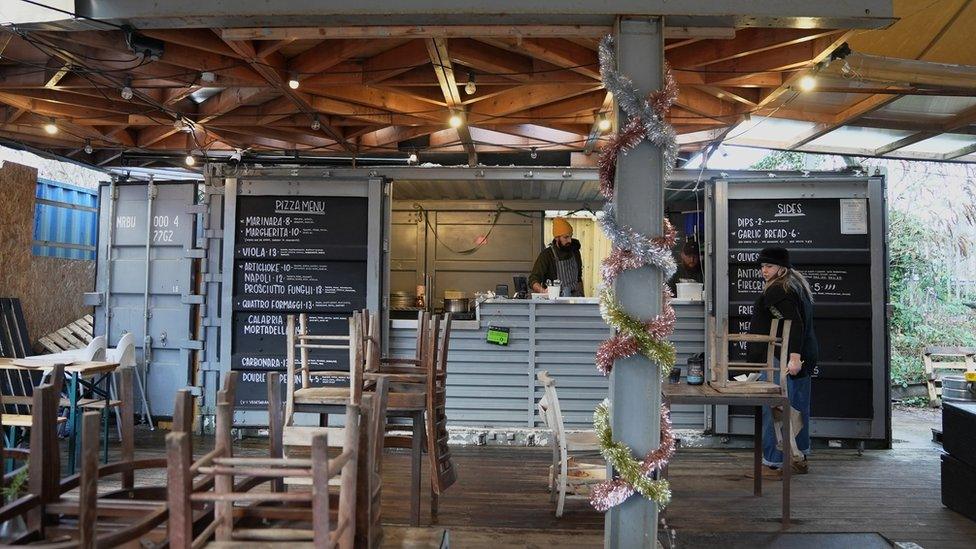
Experts believe changes in consumer attitudes are driving the success of repurposed industrial spaces

Many independent food outlets have flourished in their new locations
"I think it is interesting to think that we are now looking at going to these industrial sites with a completely different environment.
"One that perhaps we wouldn't have thought of before, but what a fantastic way to try and revive shopping and revive retail and revive socialising."
Who Cult first came to Bridgend Industrial Estate to base their fledgling clothing brand start-up.
But it soon found a new market was ready to be serviced.
That of destination dining. Or in their case, coffee and donuts.
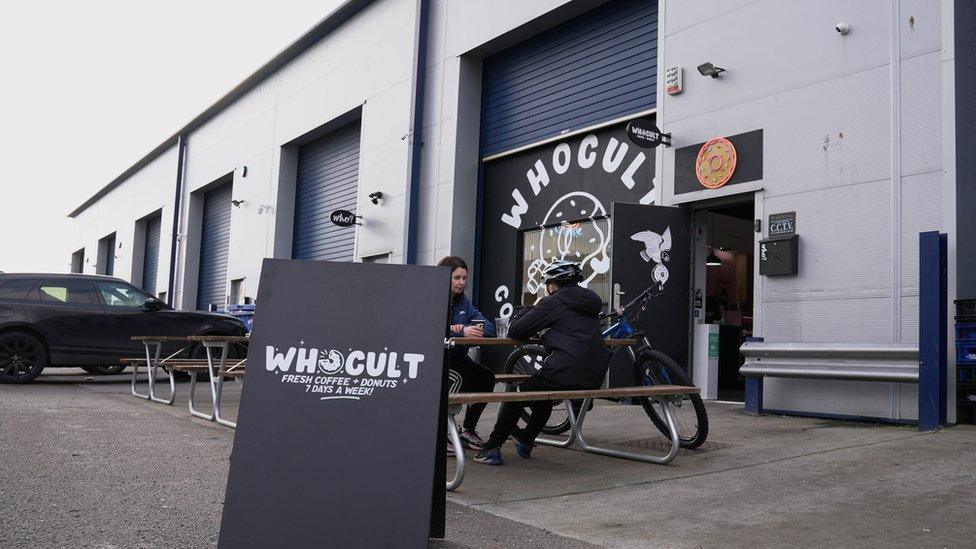
WhoCult found consumer demand was much higher than initially expected
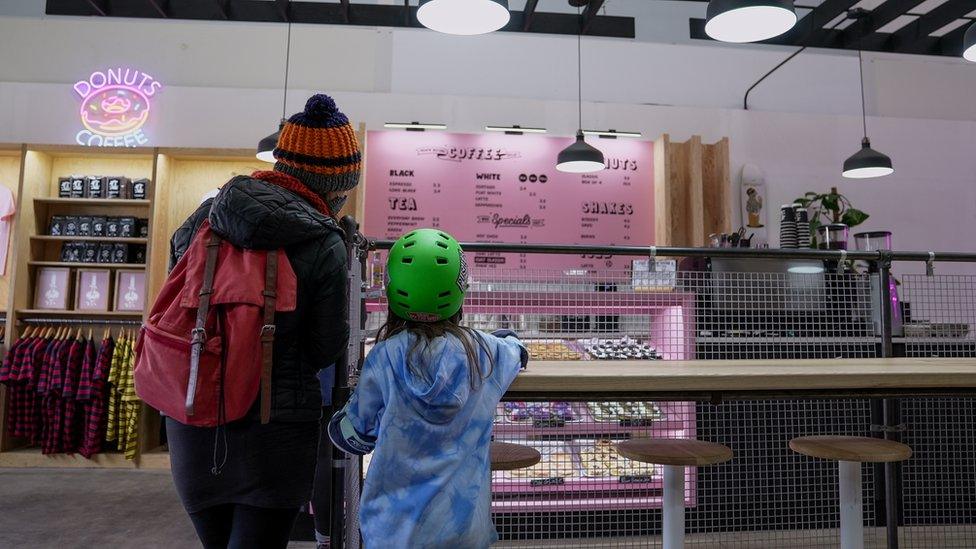
The willingness of customers to travel has underpinned the success of many businesses
The coffee shop was only meant as an add-on to customers buying clothes.
But demand soared.
Owner Scott McGill took advantage and opened a purpose built café out of town.
It has gone from strength to strength, with customers queuing through the carpark during lockdown.
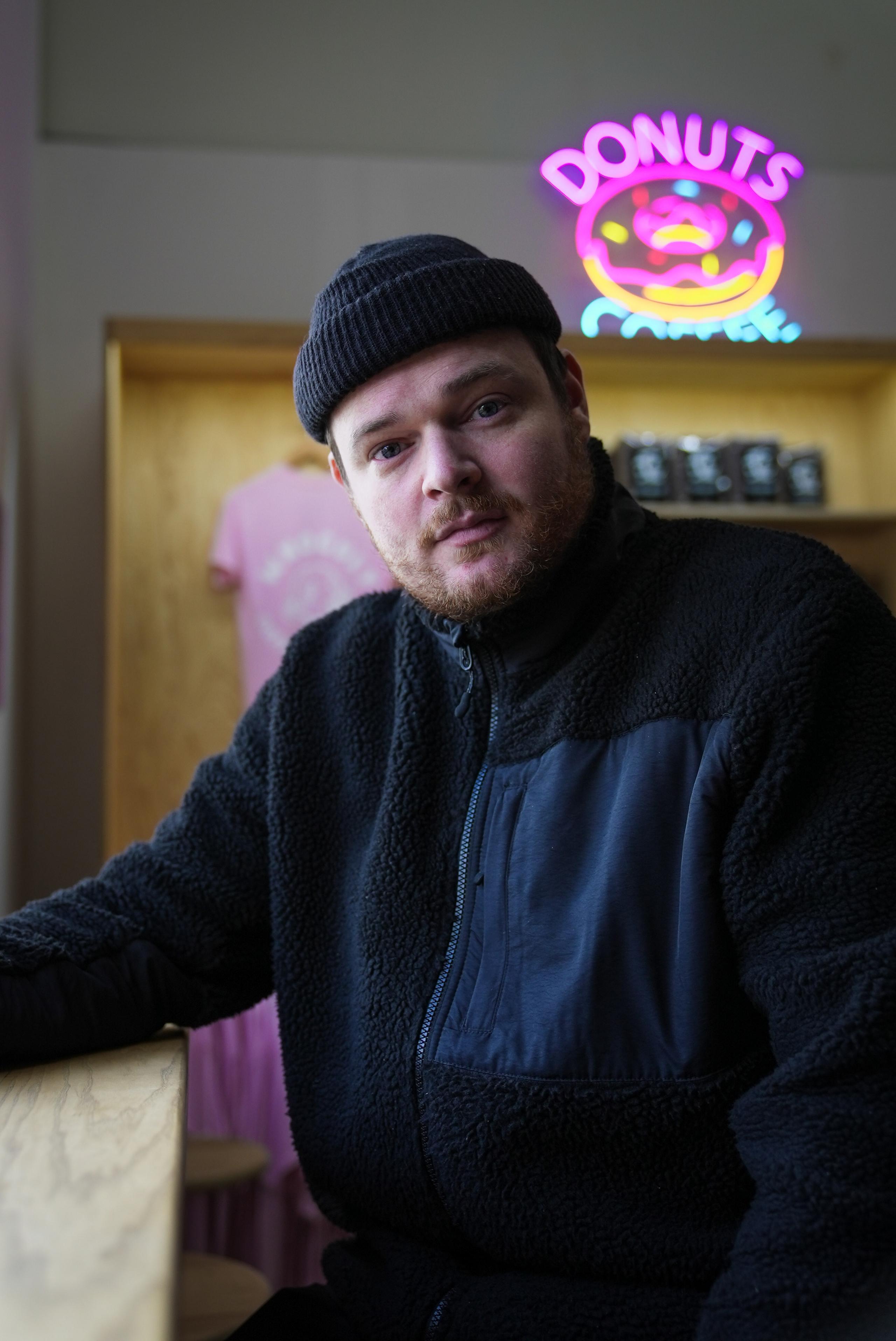
Scott McGill's cafe business grew faster than he expected
Soaring demand
They're now planning a second shop in a similar space.
Last year, estate agent Knight Frank said demand for industrial space had "soared" in Wales.
It said it had hit record levels across the UK during the first half of the year among units larger than 50,000 square feet.
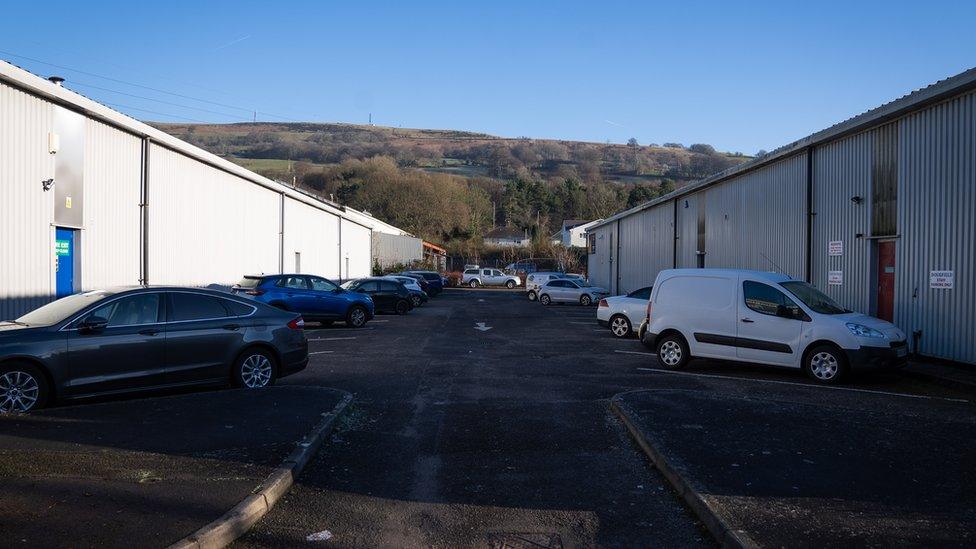
Demand for industrial space has soared across the UK
The firm said this was largely driven by retailers and distributors expanding their online and home delivery capacity in response to growing e-commerce during the pandemic.
There are planning controls which can limit retail and service activity on industrial estates and business parks.
But the growth in demand for units on these estates has given rise to a secondary service industry around it.
Gym manager James Gill says businesses like his can capitalise on this.
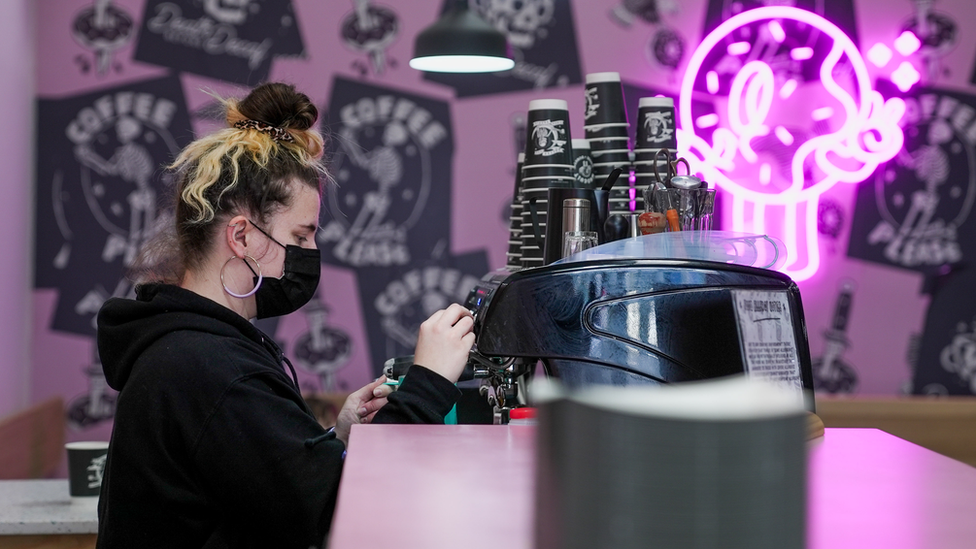
The modern day industrial estate looks very different to its originally intended use
"We'll have people come in here and do work from their offices and sit in our caff for hours," he says.
"A lot of the guys live away, they live in England, and they'll come here for work, and when they're up here they'll train here all the time."
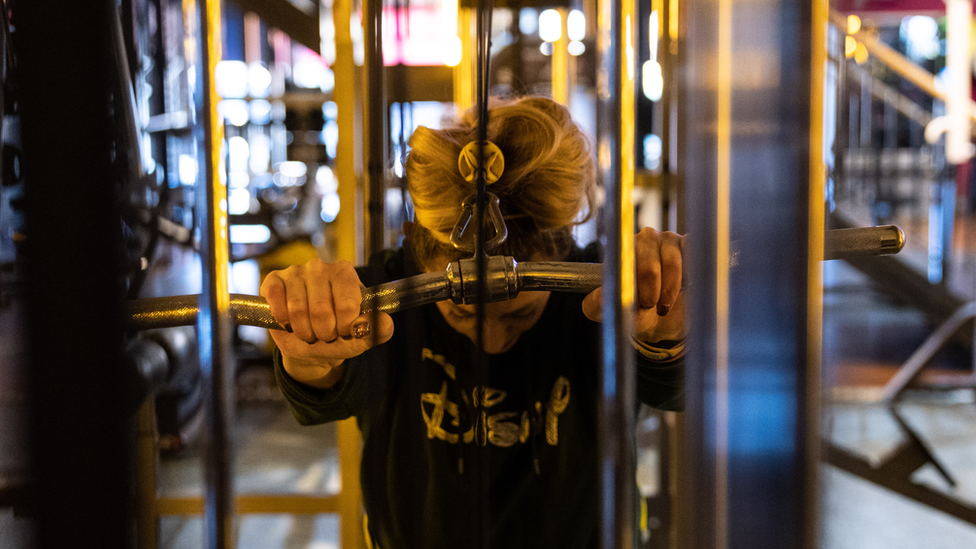
Gyms have found high demand and extra floor space in industrial areas
- Published14 November 2017
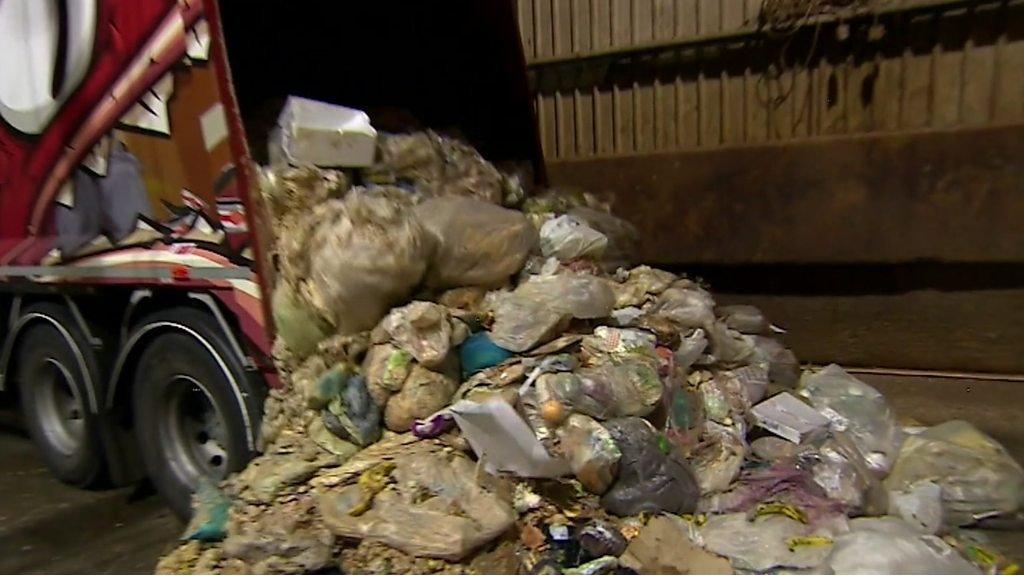
- Published6 December 2021

- Published29 December 2021
